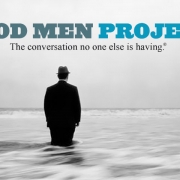Mediation for Unmarried Parents
Here are some of the questions asked of me during a recent consultation for mediation with unmarried parents:
- Do I have equal rights as a father?
- Can I still get child support?
- What decisions do we need to make for “custody and visitation” (which I refer to as a parenting plan)?
- What can we submit to the probate and family court?
- How can mediation help?
Do I have Equal Rights as a Father
Not necessarily.
Married parents are generally viewed as having equal parental rights prior to the filing of a divorce. For unmarried parents, unless and until paternity is established, mothers are provided full custody of the children. Once paternity is established how a judge determines child custody is the same for divorcing or unmarried parents.
The court can grant shared legal custody in a several scenarios, including if parents have entered into an agreement, such as one that might be forged in mediation. The Commonwealth has created a more detailed guide for custody issues for unmarried parents in Massachusetts.
Can I still get Child Support?
Yes!
Child support is the right of the child to have both parents financially contribute to their upbringing. The Massachusetts child support guidelines are the same for unmarried and divorced parents.
What decisions do we need to make for “custody and visitation?”
If there is to be parenting time for both parents a parenting time schedule would be established. Unmarried parents can also develop a more detailed parenting plan that includes how to share holidays, vacation time, and more.
What can we submit to the Probate and Family Court?
There are forms to establish paternity, child support, custody, and parenting time. You can find this information on the unmarried parents page of the probate and family court website.
How can mediation help?
Mediation can help unmarried parents decide together what is the best interests of the children. Mediation keeps the decision-making in the hands of the parents and not a judge who does not know your child. Even if there are disagreements, mediation is a model for conflict resolution that can help unmarried parents find common ground in a more private, faster, cheaper, and child-centered manner.











